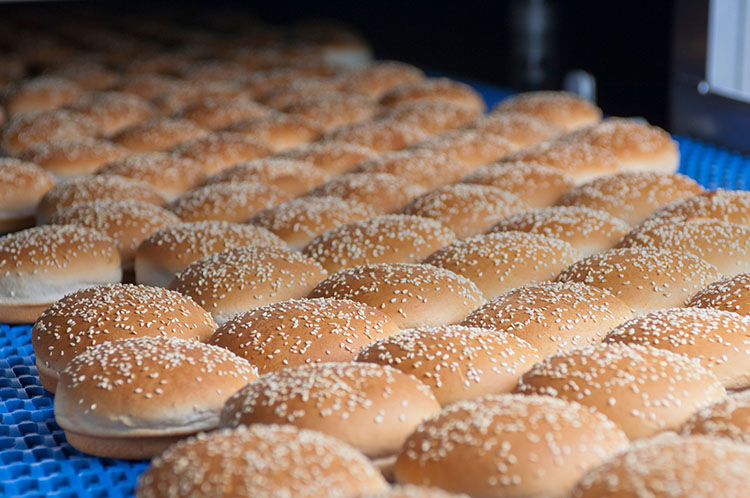
Reducing product waste in industrial bakeries
By Andrey Bulatov, Sales Support Engineer, AMF Bakery Systems Minimizing raw material loss during production contributes greatly to the efficiency
By Andrey Bulatov, Sales Support Engineer, AMF Bakery Systems Minimizing raw material loss during production contributes greatly to the efficiency
There is a clear trend for bakeries worldwide to seek a sustainable and efficient energy source. Electric ovens are an emerging favorite on this path, but companies are seeking the flexibility to invest in gas ovens now, with the option to convert to electric in the future.
The conversation around increasing manufacturing sustainability will unavoidably start with analyzing ovens, for any baking operation. Visible results are a necessity.
For industrial production, pizza lines are made to welcome any variations required. Accurate processes are a must for these flexible lines.
Reading Bakery Systems (RBS) installed its new electric-powered convection oven at the RBS Science & Innovation Center and is now ready for production trials.
Under the current circumstances, it has never been more important to look into ways to increase efficiency in bakeries, starting with their centerpiece: the tunnel oven.
While a 30% hydrogen/natural gas mixture could be considered a bridge technology to a more sustainable green fuel in the future, burning pure hydrogen gas in ovens has the challenges of a more complicated combustion process and high-pressure on-site storage systems.
Notable examples we looked into include Koenig’s new generation of roll lines – the KGV Plus, and the latest addition, KGV EC that was just launched at iba.CONNECTING EXPERTS mid-March.
Better baking for biscuits and cookies means matching the intended baking curve of the product, stage by stage, consistently and efficiently. With its Emithermic oven, Reading Bakery Systems provides complete control over five baking parameters that create a more balanced bake.

